第108章
The same vision had assailed Matho; but he cast it from him immediately, and his love, that he thus thrust back, was poured out upon his companions in arms.He cherished them like portions of his own person, of his hatred,--and he felt his spirit higher, and his arms stronger; everything that he was to accomplish appeared clearly before him.If sighs sometimes escaped him, it was because he was thinking of Spendius.
He drew up the Barbarians in six equal ranks.He posted the Etruscans in the centre, all being fastened to a bronze chain; the archers were behind, and on the wings he distributed the Naffurs, who were mounted on short-haired camels, covered with ostrich feathers.
The Suffet arranged the Carthaginians in similar order.He placed the Clinabarians outside the infantry next to the velites, and the Numidians beyond; when day appeared, both sides were thus in line face to face.All gazed at each other from a distance, with round fierce eyes.There was at first some hesitation; at last both armies moved.
The Barbarians advanced slowly so as not to become out of breath, beating the ground with their feet; the centre of the Punic army formed a convex curve.Then came the burst of a terrible shock, like the crash of two fleets in collision.The first rank of the Barbarians had quickly opened up, and the marksmen, hidden behind the others, discharged their bullets, arrows, and javelins.The curve of the Carthaginians, however, flattened by degrees, became quite straight, and then bent inwards; upon this, the two sections of the velites drew together in parallel lines, like the legs of a compass that is being closed.The Barbarians, who were attacking the phalanx with fury, entered the gap; they were being lost; Matho checked them,--and while the Carthaginian wings continued to advance, he drew out the three inner ranks of his line; they soon covered his flanks, and his army appeared in triple array.
But the Barbarians placed at the extremities were the weakest, especially those on the left, who had exhausted their quivers, and the troop of velites, which had at last come up against them, was cutting them up greatly.
Matho made them fall back.His right comprised Campanians, who were armed with axes; he hurled them against the Carthaginian left; the centre attacked the enemy, and those at the other extremity, who were out of peril, kept the velites at a distance.
Then Hamilcar divided his horsemen into squadrons, placed hoplites between them, and sent them against the Mercenaries.
Those cone-shaped masses presented a front of horses, and their broader sides were filled and bristling with lances.The Barbarians found it impossible to resist; the Greek foot-soldiers alone had brazen armour, all the rest had cutlasses on the end of poles, scythes taken from the farms, or swords manufactured out of the fellies of wheels; the soft blades were twisted by a blow, and while they were engaged in straightening them under their heels, the Carthaginians massacred them right and left at their ease.
But the Etruscans, riveted to their chain, did not stir; those who were dead, being prevented from falling, formed an obstruction with their corpses; and the great bronze line widened and contracted in turn, as supple as a serpent, and as impregnable as a wall.The Barbarians would come to re-form behind it, pant for a minute, and then set off again with the fragments of their weapons in their hands.
Many already had none left, and they leaped upon the Carthaginians, biting their faces like dogs.The Gauls in their pride stripped themselves of the sagum; they showed their great white bodies from a distance, and they enlarged their wounds to terrify the enemy.The voice of the crier announcing the orders could no longer be heard in the midst of the Punic syntagmata; their signals were being repeated by the standards, which were raised above the dust, and every one was swept away in the swaying of the great mass that surrounded him.
Hamilcar commanded the Numidians to advance.But the Naffurs rushed to meet them.
Clad in vast black robes, with a tuft of hair on the top of the skull, and a shield of rhinoceros leather, they wielded a steel which had no handle, and which they held by a rope; and their camels, which bristled all over with feathers, uttered long, hoarse cluckings.Each blade fell on a precise spot, then rose again with a smart stroke carrying off a limb with it.The fierce beasts galloped through the syntagmata.Some, whose legs were broken, went hopping along like wounded ostriches.
The Punic infantry turned in a body upon the Barbarians, and cut them off.Their maniples wheeled about at intervals from one another.The more brilliant Carthaginian weapons encircled them like golden crowns;there was a swarming movement in the centre, and the sun, striking down upon the points of the swords, made them glitter with white flickering gleams.However, files of Clinabarians lay stretched upon the plain; some Mercenaries snatched away their armour, clothed themselves in it, and then returned to the fray.The deluded Carthaginians were several times entangled in their midst.They would stand stupidly motionless, or else would back, surge again, and triumphant shouts rising in the distance seemed to drive them along like derelicts in a storm.Hamilcar was growing desperate; all was about to perish beneath the genius of Matho and the invincible courage of the Mercenaries.
But a great noise of tabourines burst forth on the horizon.It was a crowd of old men, sick persons, children of fifteen years of age, and even women, who, being unable to withstand their distress any longer, had set out from Carthage, and, for the purpose of placing themselves under the protection of something formidable, had taken from Hamilcar's palace the only elephant that the Republic now possessed,--that one, namely, whose trunk had been cut off.